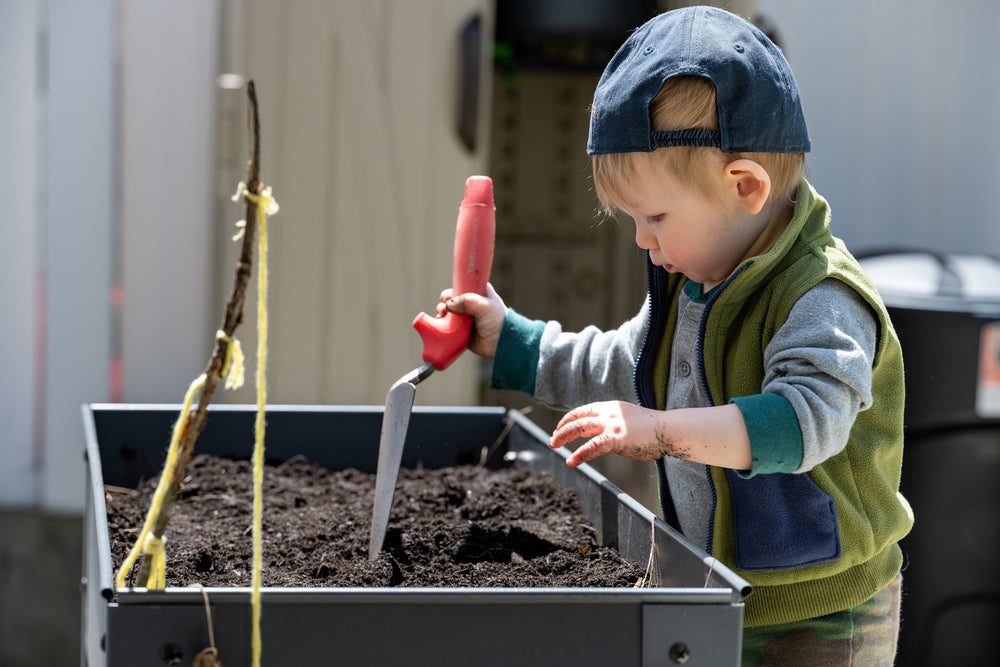News
Why Children Need a School Garden


Imagine if every child had access to a garden in their classroom. As a teacher, bringing that possibility to life could benefit more than just your students' health – it could also revolutionize the classroom experience. Here at Click and Grow we’re all about helping people connect with nature, no matter where they’re situated. Our smart gardens help make this dream a reality for schools all over the world.
If you’re a teacher, parent or caregiver considering starting a school garden, here are four important benefits it can have on your child’s development:
Learning about food systems ecology
Prepackaged food is often made in large, energy-intensive food-manufacturing systems that contribute to pollution. In fact, it’s been estimated that the food system consumes 17-20% of American fossil fuel and that 29% of the food is wasted (Blair & Sobal, 2006; Pollan, 2006). A school garden can help children understand the origins and diversity of food, broadening their perspective about which foods are natural and healthy.

Growing greens with Click and Grow smart gardens
Throughout the school year, a garden allows children to grow fruits and vegetables they may not find in the supermarket. For instance, with a Click and Grow smart garden they can plant and witness exotic plants growing such as shungiku, mizuna, red frill mustard and many more. By growing new types of plants, children learn to expand their palate beyond the bland, salty or sweet foods they may be used to.
Additionally, school gardens teach children how a plant goes from being a tiny seed to ending up as a mature, nutritious plant on their plate. They’re introduced to a local, sustainable food system. The pride of growing their own plants is something they’ll want to tell others about.
Fostering positive attitudes towards the environment
Research has found that people who grow up without much exposure to the natural world in childhood are more likely to have poor mental health as adults.
Participants were asked about their childhood experiences with nature, such as whether they used to play outdoors or go for walks in greenery. Those who reported worse mental health scores in adulthood tended to have had less exposure to nature as children. This was the case regardless of how much time they spent in nature as adults.

Local school gardens present an opportunity for children to get hands-on experience with the natural world. If your school is situated in an urban area and there isn’t much outdoor space for planting, smart gardens allow children to have that experience indoors.
Building interpersonal skills
One of the most beautiful ways a school garden can benefit children is by improving their relationship with others. Gardening has a way of captivating people, regardless of their age.
An interesting study found that young people who participated in a one-year gardening program reported an increase in self-understanding and the capability to work in groups compared to students who did not take part. Further research revealed that young people who worked in community gardens felt more mature and responsible for their actions after the program.
On top of this, Students who take part in gardening tend to have better social relationships, including better connections between neighbors in the family environment and tend to be more physically active (Wells et al., 2014).
With a smart garden in your classroom, you can grow plants that will promote discussion, teamwork, and bonding among students.
Moderating stress and anxiety

Gardens are also an excellent way of helping children to manage their emotions. The physical nature of gardening means that it can be a form of therapy for those who are struggling with stress or anxiety.
Even if you can’t grow a garden outside, the sight of green plants inside the classroom could help lower cortisol levels. It's been shown that even looking at pictures of green, natural scenery can have a soothing effect on the mind.
If you’re a teacher or homeschooling parent, we highly recommend introducing your children to gardening. Don’t just take our word for it, read about the experiences of educators using school gardens in Colorado, Ohio, and right here where we’re situated in Estonia. In the long term, a garden may turn out to be one of the most valuable gifts your children will ever receive.
Explore more: